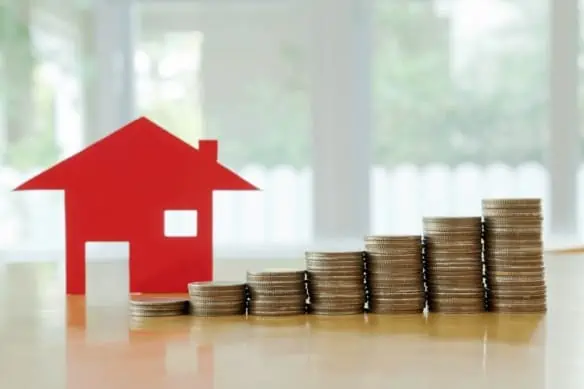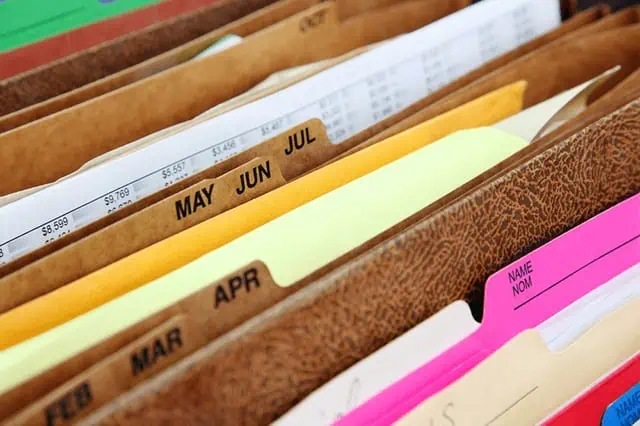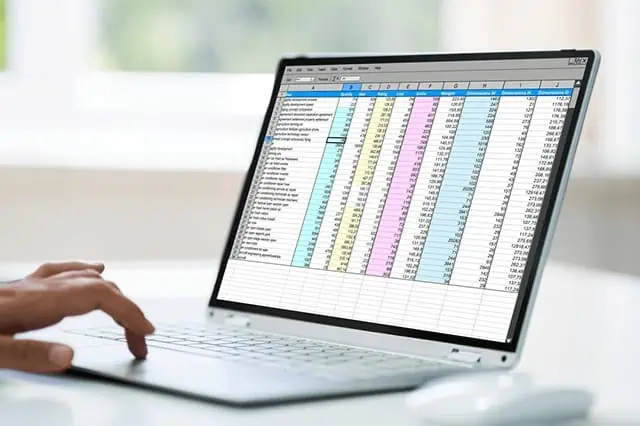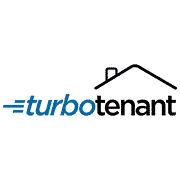We’re going to go out on a limb and assume that tasks like tracking your income and expenses, and paying business taxes, aren’t your favorite parts of real estate investing. In fact, it’s probably safe to say no business owner is exactly wild about these things.
But it’s critical to tackle them, and tackle them well. Accurate accounting and bookkeeping will provide and help you avoid underpaying or overpaying taxes—and hey, nobody wants to be on the IRS’s bad side.
Staying on top of these things provides a number of other benefits, too. It provides valuable insights into how your real estate ventures are paying off, helps you better predict cash flow and upcoming expenses, and ensures you can secure all the tax benefits you can claim as a real estate investor.
New landlord? Owned rental properties for years? Doesn’t matter—accounting and bookkeeping are essential to your real estate business. So here’s what you need to know about managing your finances as a landlord (and how to do it well).
What Is Rental Property Accounting, And Why Is It Important?
Rental property accounting is vital to the business for several reasons. Not only will accurately tracking your finances help you better understand business costs and predict your rental property income, but it will also ensure you remain compliant come tax time.
Here are several things that rental property accounting and associated rental property accounting systems can help you do.
Track expenses and rent payments on your rental properties
Having a proper accounting system can help with income and expense tracking. With a solid system in place, you can easily track which costs are associated with which properties. Also consider breaking down your business expenses into categories. For instance, you might track categories such as property taxes, mortgage interest, property depreciation, utilities, and maintenance costs.
An accounting system makes tracking property income like rental payments or security deposits easier, too. It’ll be simple to monitor accounts receivable, too, so you can follow up with renters in a timely manner if their monthly payments are overdue.
Analyze rental income and expenses to understand performance
Analyzing your rental income and expenses can also provide a broader understanding of the overall performance of your real estate assets. For example, if you constantly have maintenance problems at one of your properties or one tenant is always late with their rent, taking the time to analyze your books will help you identify those issues, determine their impact on your business, and work to resolve them.
Analyzing patterns in your current expenses can also help you plan for future expenses so they don’t sneak up on you. No one likes unexpected costs.
Stay on top of bills and tax payments
When you own rental property, it can be easy to lose track of bills and tax payments without an accounting system. This is especially true if you have a large property portfolio. Using rental property accounting software can help you stay on top of bills and tax payments you’ve made, which can help you avoid any unexpected financial mishaps.
Create rental property financial statements
Proper accounting can also make it easy to create rental property financial reports. These statements provide a quick glance at how your rental properties are performing financially. They typically include an itemized breakdown of income sources and expenses, as well as any debt you might owe on a property, like a mortgage.
Your rental property statements can offer valuable insight into your total monthly cash flow, total annual cash flow, net operating income (NOI), and return on investment (ROI) for each property.
Make tax time a breeze
When it comes time to file your taxes, accurate accounting and bookkeeping will make the process less of a headache. You won’t need to spend several hours sorting receipts or looking for tenant rent payments in your bank account.
If you’ve taken the time to track everything and create financial statements for each property, not only will it save you hours during tax season, but it’ll also be easier to identify and take advantage of potential tax benefits. Plus, if you’re getting help from a tax professional, organizing your finances ahead of time could help you save on their fees.
Related: Best Banks for Real Estate Investors + Landlords
How Do You Do Rental Property Accounting and Bookkeeping?
Setting up a rental property accounting and bookkeeping system will pay dividends for your real estate business. But getting started from scratch can feel overwhelming, so it’s important to take things step by step.
Here are some simple steps for getting a solid system in place.
1. Get organized
If you don’t already have a solid rental property accounting system in place, your first step will be to get organized—and that means locating all of your financial records. This will likely involve looking through your credit card and bank statements to track income and expenses for each of your properties. You’ll also need to gather past tax returns too.
Getting your real estate business finances organized is absolutely not a fun process, but it’ll help lay the groundwork for a simple, effective system. And in the long run, this will be a great thing for your business.
2. Open up a business account (for each rental property)
Next, open a business bank account so you can keep your rental property banking separate from your personal banking—something that not only will keep you better organized, but will also prevent accidentally mixing up your personal and business finances and running afoul of the IRS.
Consider opening a business savings and checking account for each rental property; doing so could make it much simpler to track financial transactions for every investment.
Now, managing multiple accounts for each property can get unwieldy. So at the very least, create a spreadsheet of your accounts. But we strongly suggest linking them all to your accounting or bookkeeping software to help you stay on track.
Related: Security Deposit Laws in New Jersey [What Landlords Need to Know]
3. Keep track of your rental income and expenses
The next step is actually keeping track of your rental income and expenses.
While having a business bank account for each property is well and good, if you never look at what’s going into it versus what’s going out, your won’t gain any insights from it.
Either make it a point to log in and check your transactions regularly, or link up your bank accounts to bookkeeping or accounting software that compiles their individual data and provides both granular views of each property, as well as the overall financial performance of your property portfolio.
4. Consider a tax professional
Investment property adds another wrinkle to your tax prep. And the more property you buy, the more complicated your returns will become. So beyond setting up bank accounts and tracking your finances, you might also want to find a reputable tax professional to help you calculate payments and file your returns.
A tax pro can help with everything from completing basic tax forms to calculating depreciation to accurately estimating future tax payments.
It should go without saying, but seek out a tax professional with expertise in real estate investing; that will reduce the chances you’ll accidentally underpay or overpay your taxes.
5. Use rental property accounting software
We’ve already referenced it several times, but let’s be clear: Rental property accounting apps and software can make it much, much easier to track your financial performance. And fortunately, there are many excellent accounting software options to choose from.
If you’re a landlord or property manager that’s interested in going this route, Baselane is one of the top options on offer. This property management software offers basic accounting features, as well as banking tools and insights into your cash flow. It also lets you automate online rent collection, which is a huge time-saver. And the best part? Baselane accounts are free.
- Baselane is a complete rental property financial management system.
- Baselane's bank accounts for landlords have no fees and offer high yields on all balances (up to 2.93% APY as of 10/29/2025*). Other features include check writing, same-day ACH payments, and up to $3 million in FDIC insurance.
- Baselane also offers bookkeeping, rent collection, analytics, and more.
- Special Offer ($150 bonus): Earn a $150 bonus after completing four steps with your Baselane Banking account. (1) Make a deposit of greater than $500 into a Baselane banking account within 30 days. (2) Maintain that average balance for 60 days. (3) Make more than $1,500 worth of mortgage payments within 90 days. (4) Collect more than $1,500 of rent via Baselane into Baselane Banking within 90 days.
- Free high-yield bank account
- Free online rent collection
- Same-day ACH payments
- Check writing
- Up to $3 million in FDIC insurance
- 50 states lease creation and e-sign
- Provides Zillow-sourced market values automatically
- No rental property listing capabilities
- No partial rent payment options
Other options that are either centered around rental property accounting and bookkeeping, or are all-in-one property management software solutions:
- TurboTenant (basic account is free)
- DoorLoop (as low as $24.50 for the first two months, and $49 every two months after that)
- Stessa (basic account is free)
|
Primary Rating:
4.1
|
Primary Rating:
3.8
|
Primary Rating:
3.5
|
|
Free tier: Free. Premium: $79/yr.
|
Free, no fees for basic product; fee-based premium services available
|
Starter: $24.50/mo. Pro: $39.50/mo. Premium: $54.50/mo.*
|
Related: 7 Best Video Intercom Systems for Apartments [Fix Your Callbox]
How to Manage Finances for a Rental Property
Having the right tools in place can help you manage finances for a rental property.
A big first step is setting up bank accounts for each of your rental properties. The bare minimum you should do is set up one bank account dedicated to all of your properties. A step up from that is opening up one bank account for each of your properties.
But the smartest move is to set up both a checking account for each of your properties to manage most of the finances, and a separate savings for each of your properties to manage deposits. For one, you don’t want to commingle deposit money with other income, and also, many states actually mandate separate, dedicated accounts for deposits.
Past that, you’ll want to shop around for property management software and/or accounting software. The best programs for you will depend upon your unique needs, but Baselane and Innago are both worth considering.
Related: 9 Best Real Estate Crowdfunding Sites + Platforms
Rental Property Accounting and Bookkeeping FAQs
What is the difference between the cash method and accrual method of accounting?
There are two primary accounting methods you can use as a landlord or property manager: the cash method and the accrual method. Each works a little differently.
With the cash method, you track when cash actually comes into or leaves your account. And with the accrual method, you track when cash is earned or owed.
So for example, if you use cash accounting to track rent payments, you’ll denote when the rent payment hits your bank account. Whereas if you use accrual accounting, you’ll denote when the rent payment is due.
Both accounting methods have their pros and cons. For instance, the cash method is easier because all bookkeeping happens when cash changes hands, and it provides a more accurate picture of your actual cash position, but it can sometimes result in “lumpier” results depending on when the business is paid. However, the accrual method is better for keeping track of credit transactions, and it’s a truer measure of your normalized operations, but the bookkeeping can be more complicated.
Do property managers handle bookkeeping?
Property managers often handle bookkeeping in addition to other tasks, such as filling vacancies, collecting rent, and managing maintenance requests. But some property managers might not offer a bookkeeping service.
The services your property management company provides will vary depending on who you choose to work with, so it’s important to discuss your needs upfront if you’re looking around for a property manager. This is especially true if you’re specifically looking for bookkeeping services.
Also pay attention to costs, as management fees can vary too.
What is a chart of accounts in property management?
A chart of accounts tracks all the financial accounts associated with your rental properties. It will generally include income and expenses, as well as any equity, assets, and liabilities you might have. Equity is any money you’ve invested in your business, assets may include business bank accounts, and liabilities may include mortgages on your properties.
The chart of accounts can be used to evaluate your real estate business’s financial health, project income or future expenses, and offer insights for third parties like accountants or investors.
Should I set up a business bank account for my rental property?
It’s an extremely good idea to set up a business bank account for your rental property. In fact, you might want to set up two—both a savings account and a checking account—for each property so you have one place to tackle most everyday business and another account dedicated to deposit money.
One of the most important goals you’re trying to accomplish here is separating your business finances from your personal finances. It makes it easier to track how your business is performing, it’ll make you more organized come tax time, and it will keep you from making a costly mistake that leads to an IRS audit.
What expenses must be capitalized for rental property?
Expenses that must be capitalized are costs associated with upgrading or enhancing your rental property or replacing items like appliances and furniture inside of your rental property. Examples of capital expenses for rental property might include replacing an HVAC or plumbing system, fixing an inoperable apartment complex swimming pool, or repairing a structural component like the foundation or roof.
These costs are outside the norm of common expenses like property management fees and basic repairs, and it can be tricky to predict when you’ll incur them. That’s why it’s a good idea to have a cash reserve that you can tap into when needed, kind of like an emergency fund for your real estate business.
While you can’t directly deduct capital expenses from your taxes, these costs factor into depreciation, which can help reduce your total tax bill.
Related:
















![10 Best Banking Apps for Kids & Teens [Kid + Teen Banking] 32 banking apps for kids and teens](https://youngandtheinvested.com/wp-content/uploads/banking-apps-for-kids-and-teens.webp)
![8 Best Teen Checking Accounts [Banks for Teens] 33 best teen checking accounts](https://youngandtheinvested.com/wp-content/uploads/best-teen-checking-accounts.webp)
![11 Best Debit Cards for Kids [2025] 34 best debit cards for kids](https://youngandtheinvested.com/wp-content/uploads/best-debit-cards-for-kids-600x403.webp)
